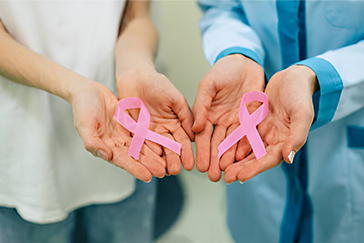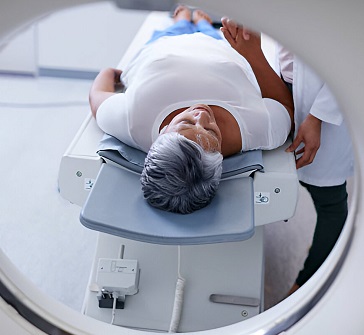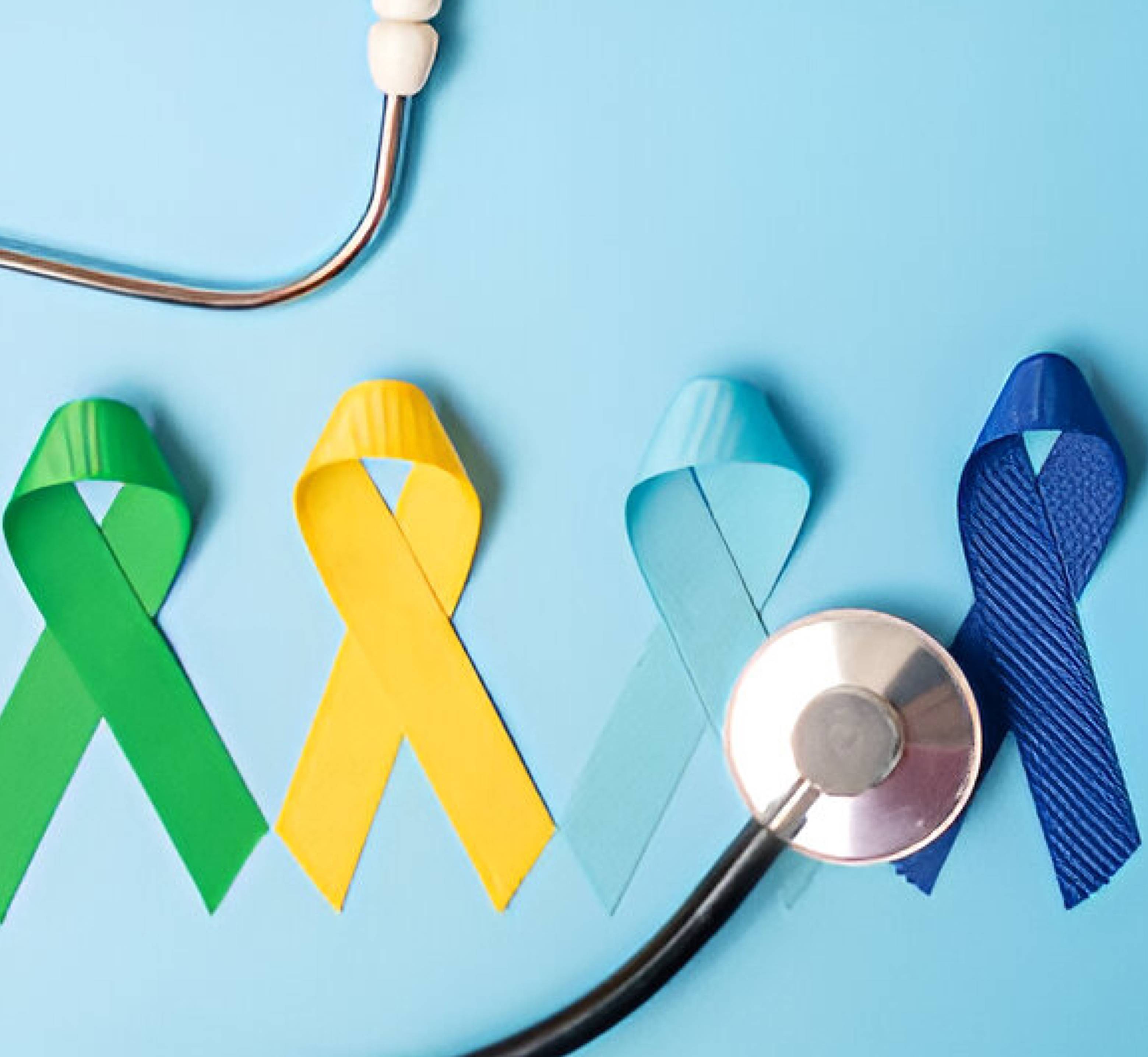 Book Appt.
Book Appt.
 Call Now
Call Now


Uro-oncology, also known as urological oncology, is the study of cancers in the male and female urinary systems, as well as the male reproductive organs. Urological oncology is concerned with the diagnosis, staging, and treatment of malignancies of the urinary system, which includes the bladder, kidney, prostate, penis, and testicles. Urological oncologists are certified and trained surgeons who specialize in treating urological cancers. When someone is diagnosed with urological cancer, surgery is the primary course of action. This is most effective during the early stages of cancer. As cancer advances, surgery is paired with other methods such as chemotherapy, radiation, and immunotherapy.
Common Types
Prostate Cancer: Prostate cancer accounts for 14.1% of male malignancies and 6.8% of cancer-related deaths (ranked fifth), largely affecting men aged 45 to 60. This cancer is the greatest cause of death in Western countries, presenting itself in both localized and advanced stages.
Bladder Cancer: Bladder cancer (BCa) is the most common urinary tract malignancy, accounting for around 3% of new cancer cases and 2.1% of cancer deaths in both male and female populations.
Kidney Cancer: Renal cell carcinoma (RCC), often known as kidney cancer, affects more men than women. It is distinguished by aggressive histology, bigger tumor size, higher grade and stage, and a poor prognosis. The incidence of this condition is 5% in males and 3% in women.
Testicular Cancer (Tca) and Penile Cancer (PeC): These are relatively rare, each accounting for 0.4% and 0.2%, respectively, of all cancers in men. These cancers are responsible for approximately 0.1% of cancer-related mortality in men.
Causes
Urological cancer's exact cause is unknown, but some risk factors include:
Gene mutation
Smoking
Schistosoma haematobium infection
Work exposure to polycyclic aromatic hydrocarbons.
Consumption of tap water contaminated with chlorine, chlorination byproducts, or arsenic
Family history
Age
Gender (Men are more than twice as likely as women to develop urological cancer)
Obesity
High blood pressure
Advanced kidney disease and extended kidney dialysis
Symptoms
The symptoms of urological cancer differ depending on the organ involved. Some of them include haematuria, erectile dysfunction, lower back pain, and painful or frequent urination Blood at the entrance of the penis anemia, loss of appetite, weight loss hypertension, and ankle and leg swelling men may experience breast soreness or growth, variations in the size, pain in the testicles, urine flow is disturbed, and there is a lump or cyst near the penis or testis.
Diagnostics
Urologists utilize thorough diagnostic procedures to classify cancer into tumors, lymph nodes, and metastases. X-rays, prostate-specific antigen (PSA) tests (used to diagnose prostate cancer stage), core needle biopsy, magnetic resonance imaging (MRI), computed tomography (CT) scans, angiography, and positron emission tomography (PET) scans are some of the most popular diagnostic tests.
Treatments
Treatment options for urologic cancers vary depending on the cancer type, stage, and patient characteristics.
Surgery: Surgery is the first-line treatment for urological cancer. Urological cancer operations include prostatectomy, radical cystectomy (surgical removal of the bladder), radical orchiectomy (surgical removal of the afflicted testicle), and partial or total penectomy.
Chemotherapy: These drugs disrupt or restrict cancer cell development and are used in conjunction with surgery or radiation therapy to treat advanced cancer symptoms.
Radiation Therapy: Radiation therapy is the use of X-rays to kill cancer cells. Sometimes radioactive elements are placed inside or near the cancerous area.
Hormonal Therapy: This therapy, also known as androgen deprivation therapy, is used to treat advanced prostate cancer by preventing or reducing testosterone production.
Targeted Therapy: A precision cancer treatment targets specific characteristics of cancer cells, limiting their proliferation or preventing new cancer cell production. It is used to identify whether a patient would benefit from advanced genetic testing and other diagnostics while saving normal cells from the damage caused by standard chemotherapy.
Immunotherapy: Immunotherapeutic drugs cause the immune system to target and eliminate cancer cells. These kinds of medications detect cancer cells and trigger immune responses to remove them.
To provide individualized care tailored to each patient's needs and desires, treatment decisions for urologic tumors are best made by a multidisciplinary team of urologists, medical oncologists, radiation oncologists, psychologists, and other experts.
Prevention
Prevention and lifestyle changes play critical roles in reducing the risk of urological cancers.
Maintain a Healthy Weight
Avoid Tobacco
Limit Alcohol Consumption
Stay Hydrated
Practice Safe Sex
Protect yourself from work-related exposure
Contact us: SHALBY Sanar International Hospitals, Gurugram
SHALBY Sanar International Hospitals, Gurugram, our team of highly qualified doctors and nurses specializes in caring for patients with urological cancers, bringing extensive experience to ensure the best possible care.
SHALBY Sanar International Hospitals provides extensive medical procedures backed up with our state-of-the-art technology and a team of highly qualified & experienced clinical experts.

Grade 2 Endometrium Cancer | Ms. Robiyakhon | Uzbekistan | Dr. Archit Pandit | SHALBY Sanar

Male Breast Cancer Recovery Story | Dr. Archit Pandit | Cameroon | SHALBY Sanar

Ms. Nafisa’s Inspiring Breast Cancer Recovery | Dr. Archit Pandit | Uzbekistan | SHALBY Sanar International Hospitals

Stage4 colon cancer is curable - Colon cancer with liver metastasis | Kenya | Dr Archit Pandit

Patient from Kenya Treated by Dr. Archit Pandit | SHALBY Sanar International Hospitals

Double Cancer Victory: Mrs. Salma Kapoor's Inspiring Recovery Story | Dr. Archit Pandit

Patient from Uzbekistan Treated by Dr. Archit Pandit | SHALBY Sanar International Hospitals

Patient from Uzbekistan Treated by Dr. Archit Pandit | SHALBY Sanar International Hospitals

Successful Carcinoma Buccal Mucosa Surgery of a Patient from Nigeria by Dr. Archit Pandit

Successful Colon Cancer Surgery of Mr. Faraidun Kaka Bra Amin Amin's from Iraq | Dr Archit Pandit

Miraculous Recovery of a patient from Uzbekistan battling Ovarian Cancer | Dr. Archit Pandit

Successful Cancer Detection & Surgery by Dr. Archit Pandit | SHALBY SHALBY Sanar International Hospitals

Successful Colon Cancer Treatment of a patient from Iraq by Dr Archit Pandit | Surgical Oncology

Successful Glottis Mass & Carcinoma Vocal Cord Treatment of a patient from Iraq by Dr Archit Pandit

Successful Stage 4 Colon Cancer Treatment of a patient from Kenya by Dr Archit Pandit

Surviving the Odds: 56-Year-Old's Journey with Recurrent Carcinoma Vocal Cord | Dr. Archit Pandit

Surviving Recto-Sigmoid Cancer: Mr. Syamand Ahmed's Inspiring Journey

Success Story: Iraqi Patient's Liver Tumour Treatment at SHALBY Sanar International Hospitals

Cytoreductive Surgery Success: Iraqi Patient's 30cm Ovarian Tumor Removed Safely

Beating Liver Cancer: Mr. Abdirashid's Inspiring Story

Ms. Nejood's Success Over Pancreatic Cancer: A Remarkable Journey

Transforming Smiles: Revolutionary Buccal Commando Procedure

Wide Local Excision Surgery & Microvascular Reconstruction of a Cancer patient

Successful Surgery of Esophgeal Cancer

Successful Lung Cancer Surgery of Ms. Jerioth Wanjiru from Kenya

Para Thyroidectomy on Pt Jawad Kadhim Tweli from Iraq

Dr Archit Pandit discusses the fascinating case of Geeta Rani
Our doctors pen down their research findings and experiences from time to time. Their words provide deep insight into the latest techniques, technologies and other advancements in healthcare. It provides expert answers to all kinds of health questions for real-life issues.
VIEW ALL




Since the day of its foundation, SHALBY Sanar International Hospitals is committed to provide comprehensive healthcare services. It regularly organizes awareness programs in its premises and encourages outdoor healthcare activities and camps with an intent to put focus on preventive healthcare.
VIEW ALL